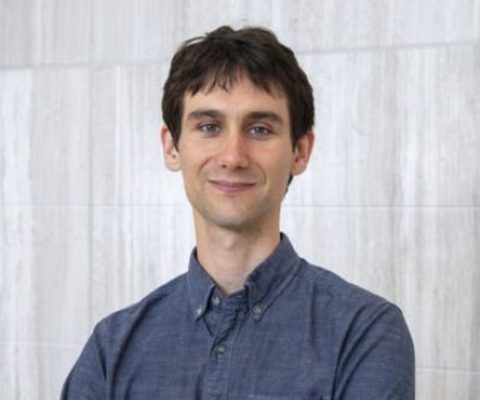Michael Groechenig
Pure math researchers see long game for applications
“I would compare it to philosophy in a way,” Professor Michael Groechenig says of the development of the field of algebraic geometry over centuries. “The problems we’re working on, they come from somewhere. The research community kind of arrived at those problems over the course of a long process – there’s a certain history to them. And it’s a field that has changed drastically over the past century or so.
“Applications exist,” says the University of Toronto mathematician. “But, you know, it’s a small percentage of mathematical research that leads to applications. However, when there is an application, it’s usually quite important.
“Very often when those applications are found, it’s not just decades later, but even centuries later. And so in a way, I feel like the purpose of a pure mathematician like me is also to preserve this knowledge and to make sure that we don’t forget that we can lose this skill; it’s a means of keeping the tradition alive, and to pass it on to future mathematicians, and also, possibly future engineers, or other people who might be working on applications.”
Dr. Groechenig’s research focuses on moduli spaces.
He says winning the Sloan Fellowship is special because it’s validation from fellow mathematicians, to a certain extent.
“Once in a while, it’s nice to receive a tap on the shoulder to say something’s well done. Sometimes there are big stretches of time where you receive very little feedback. Failure is part of the research; it happens constantly. And so sometimes it’s nice that certain achievements are recognized by your peers.”
Photo credit: Drew Lesiuczok

